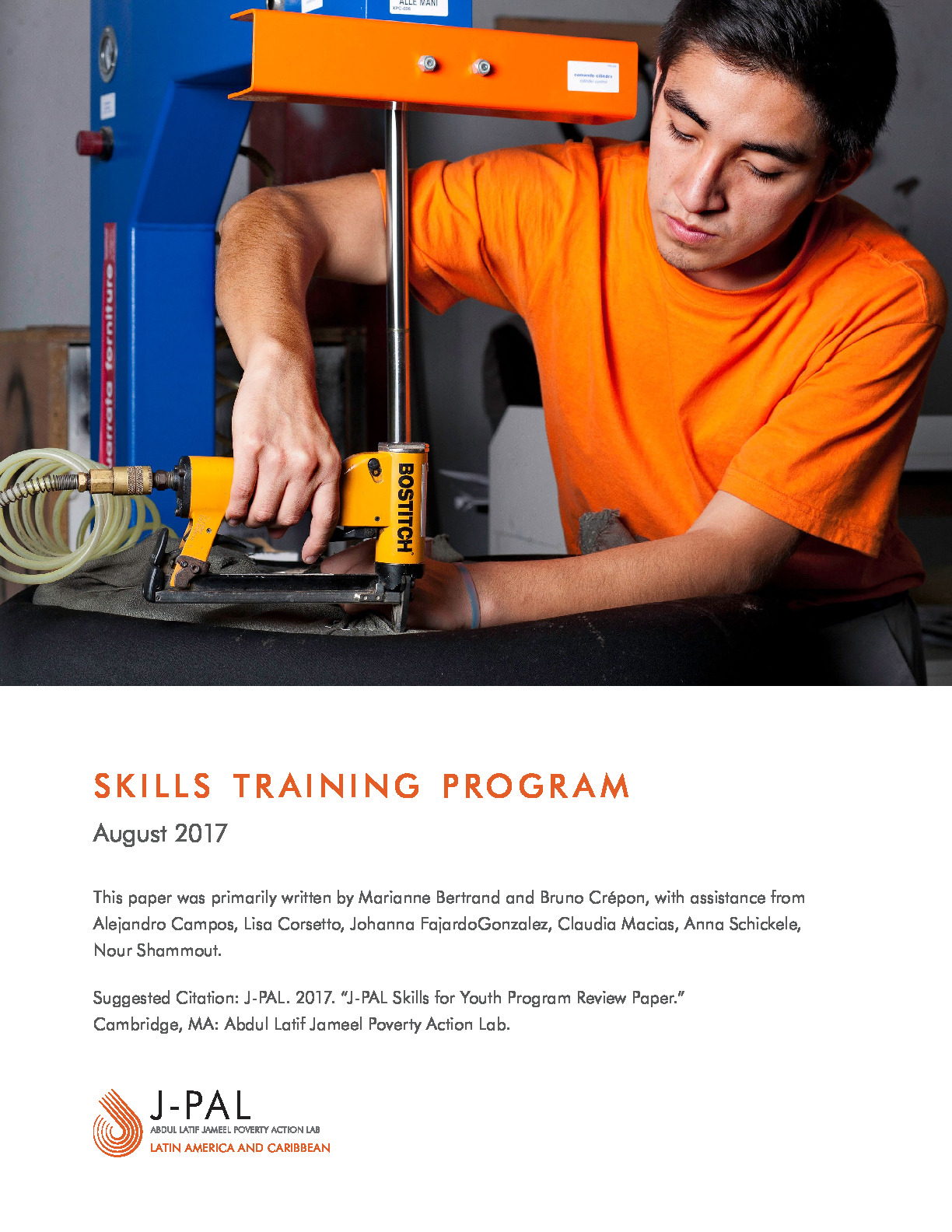Skills Training Programs
About one-fifth of the world’s population is between 15 and 24 years of age, and the economic, social, and political consequences of this "youth bulge" will be experienced for decades to come. Adolescence is a time when critical decisions must be made—for example, about marriage, schooling, careers, fertility—that can dramatically impact the future trajectory of lives. It is also a period of habit formation with potential longer-term consequences for the individual and for the society. For example, decisions about smoking, drug use, eating habits, and sexual activity will have ramifications for the individual while the solidification of cultural and gender norms will influence the rest of society. While more young adults complete primary education and survive childhood diseases than ever before, they must be equipped with advanced skills beyond literacy to succeed in the contemporary economy. Investing in the health and future human capital of youth has the potential to positively affect poverty reduction well into the future through better skilled, healthier, and more active labor market participants; reduced fertility; and lowered disease burdens.
